 Interfor raised its Q4 lumber production curtailment to 26%, split evenly between its US and Canadian operations. In related news: Georgia Pacific is closing its Memphis Cellulose mill; Kimberly Clark is looking to expand in Warren, Michigan; Van Urban Timber is expanding in Squamish, BC; Mercer Celgar Pulp is fined for sulphur emissions; and Mississippi residents sue Drax over wood pellet emissions. Meanwhile: Carney rules out hitting the US with retaliatory tariffs; a Canadian MP asks why lumber jobs are going south; Saskatchewan producers want to diversify; and a Kentucky hardwood mill owner says his future is in doubt.
Interfor raised its Q4 lumber production curtailment to 26%, split evenly between its US and Canadian operations. In related news: Georgia Pacific is closing its Memphis Cellulose mill; Kimberly Clark is looking to expand in Warren, Michigan; Van Urban Timber is expanding in Squamish, BC; Mercer Celgar Pulp is fined for sulphur emissions; and Mississippi residents sue Drax over wood pellet emissions. Meanwhile: Carney rules out hitting the US with retaliatory tariffs; a Canadian MP asks why lumber jobs are going south; Saskatchewan producers want to diversify; and a Kentucky hardwood mill owner says his future is in doubt.
In Forestry/Climate news: Canada launches a Clean Energy task force; the BC Conservative leader says the NDP is responsible for forestry’s decline; the US government shutdown is stopping vital wood research; SFPA joins the simplification call for EU Deforestation Regulation; and Survival in a Mill Town—a new book by Oregon’s Von Braschler.
Finally, a Tree Frog special feature on Trump’s second term and political risk in the Canadian forest sector.
Kelly McCloskey, Tree Frog News Editor



 BURNABY, BC — Interfor announced today revised operating plans for the fourth quarter of 2025. Due to persistently weak market conditions and ongoing economic uncertainty, Interfor will further temporarily reduce lumber production across its operations in British Columbia, Ontario, the US Pacific Northwest and the US South. These curtailments are expected to reduce lumber production in the fourth quarter of 2025 by approximately 250 million board feet, or 26%, as compared to the second quarter of 2025, which reflected a more normal operating stance. The curtailment volumes are approximately evenly split between Interfor’s Canadian and U.S. operations. …These curtailments are an amendment to Interfor’s previously announced curtailments on September 4, 2025. “Lumber prices in all regions of North America have continued to weaken, from already unsustainably low levels,” said Ian Fillinger, Interfor’s CEO. …While necessary, we fully recognize the impact these actions will have on our employees, contractors, suppliers and communities.”
BURNABY, BC — Interfor announced today revised operating plans for the fourth quarter of 2025. Due to persistently weak market conditions and ongoing economic uncertainty, Interfor will further temporarily reduce lumber production across its operations in British Columbia, Ontario, the US Pacific Northwest and the US South. These curtailments are expected to reduce lumber production in the fourth quarter of 2025 by approximately 250 million board feet, or 26%, as compared to the second quarter of 2025, which reflected a more normal operating stance. The curtailment volumes are approximately evenly split between Interfor’s Canadian and U.S. operations. …These curtailments are an amendment to Interfor’s previously announced curtailments on September 4, 2025. “Lumber prices in all regions of North America have continued to weaken, from already unsustainably low levels,” said Ian Fillinger, Interfor’s CEO. …While necessary, we fully recognize the impact these actions will have on our employees, contractors, suppliers and communities.”

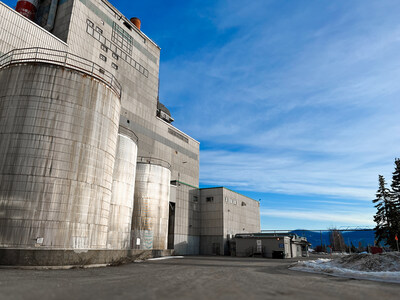
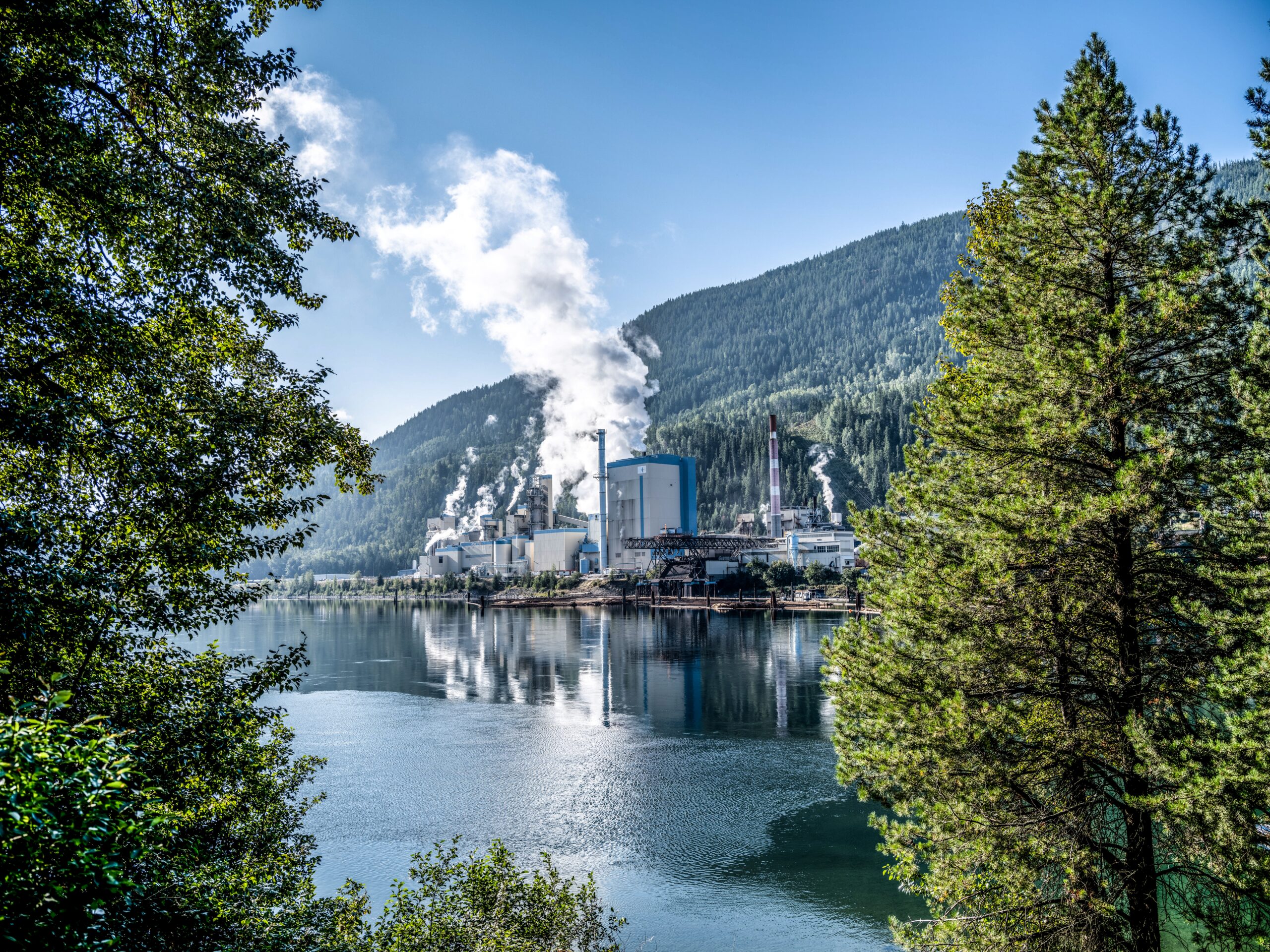

 British Columbia’s forest sector is at a crossroads — facing tough challenges, but also leading the way in solutions that matter most to our province: housing, wildfire resilience, reconciliation, and sustainable economic growth. At the 2026 COFI Convention, leaders from across industry, government, and Indigenous and community partners will come together to rebuild competitiveness and chart the future of a strong, sustainable forest sector. Join us in Vancouver for the largest forest sector gathering in Western Canada. April 8 – 10, 2026 at the JW Marriot Parq Vancouver
British Columbia’s forest sector is at a crossroads — facing tough challenges, but also leading the way in solutions that matter most to our province: housing, wildfire resilience, reconciliation, and sustainable economic growth. At the 2026 COFI Convention, leaders from across industry, government, and Indigenous and community partners will come together to rebuild competitiveness and chart the future of a strong, sustainable forest sector. Join us in Vancouver for the largest forest sector gathering in Western Canada. April 8 – 10, 2026 at the JW Marriot Parq Vancouver




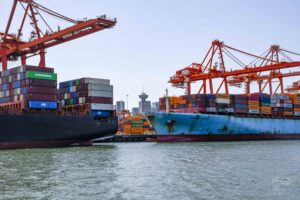 With new tariffs taking effect on furniture and lumber, an analysis released by Goldman Sachs finds American consumers are paying for more than half of the cost of the levies imposed by President Donald Trump. In a research note to its clients, the global investment and banking giant said U.S. consumers will absorb 55% of tariff costs by the end of this year. American businesses would pay 22% of the costs, foreign exporters would absorb 18% and 5% would be evaded, according to the Goldman Sachs analysis. Consumers could end up paying 70% of the cost by the end of next year, the report said. “At the moment, however, US businesses are likely bearing a larger share of the costs because some tariffs have just gone into effect and it takes time to raise prices on consumers and negotiate lower import prices with foreign suppliers,” the analysis adds.
With new tariffs taking effect on furniture and lumber, an analysis released by Goldman Sachs finds American consumers are paying for more than half of the cost of the levies imposed by President Donald Trump. In a research note to its clients, the global investment and banking giant said U.S. consumers will absorb 55% of tariff costs by the end of this year. American businesses would pay 22% of the costs, foreign exporters would absorb 18% and 5% would be evaded, according to the Goldman Sachs analysis. Consumers could end up paying 70% of the cost by the end of next year, the report said. “At the moment, however, US businesses are likely bearing a larger share of the costs because some tariffs have just gone into effect and it takes time to raise prices on consumers and negotiate lower import prices with foreign suppliers,” the analysis adds. 
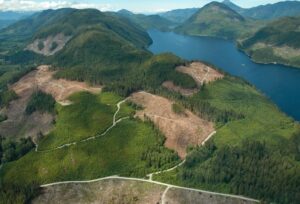 BC’s forest communities are on life support. Families are losing jobs, mills are shuttering, and entire towns are being hollowed out. And now, with another punishing softwood lumber tariff slapped on by the U.S., the bleeding has gone from slow to catastrophic. Premier David Eby calls it an “existential crisis” and wants the prime minister to declare a national emergency. Here’s a better idea: How about the premier stops being the emergency? For eight years, the B.C. NDP has dismantled the foundation of our forest industry. They have made it harder to cut, harder to haul, harder to process, and harder to survive. Now Eby is running to Ottawa and blaming the Americans while ignoring the damage his government has already done. Let’s be clear. The forest industry is not collapsing because of one more tariff. It is collapsing because this government has gutted it from the inside.
BC’s forest communities are on life support. Families are losing jobs, mills are shuttering, and entire towns are being hollowed out. And now, with another punishing softwood lumber tariff slapped on by the U.S., the bleeding has gone from slow to catastrophic. Premier David Eby calls it an “existential crisis” and wants the prime minister to declare a national emergency. Here’s a better idea: How about the premier stops being the emergency? For eight years, the B.C. NDP has dismantled the foundation of our forest industry. They have made it harder to cut, harder to haul, harder to process, and harder to survive. Now Eby is running to Ottawa and blaming the Americans while ignoring the damage his government has already done. Let’s be clear. The forest industry is not collapsing because of one more tariff. It is collapsing because this government has gutted it from the inside. 
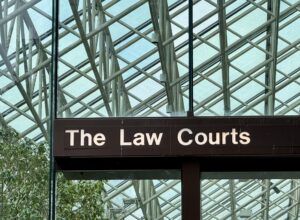 The man charged after an investigation into the largest wildfire in Nova Scotia history has been fined $25,000. Dalton Stewart, 23, chose not to speak when he was handed the sentence Thursday in Barrington provincial court. The sentence — a joint recommendation from the Crown and defence — also includes an order to complete educational training on wildfire prevention.
The man charged after an investigation into the largest wildfire in Nova Scotia history has been fined $25,000. Dalton Stewart, 23, chose not to speak when he was handed the sentence Thursday in Barrington provincial court. The sentence — a joint recommendation from the Crown and defence — also includes an order to complete educational training on wildfire prevention. 
 As the European Commission prepares a further postponement of its Deforestation-free Regulation (EUDR), proposals to simplify the law are abundant in Brussels. The undersigned organizations, representing the U.S. forestry and forest products sector value chain, urge the Commission to avoid a rushed process and take the time necessary to pursue simplification with great care. An additional year provides a valuable opportunity for the Commission to engage in productive dialogue with forest owners and operators in highly forested, low-risk countries like the U.S. to understand implementation challenges and reduce unintended consequences. “Simplifying a law as significant as the EUDR requires thoughtful and purposeful review,” said Eric Gee, executive director of the Southern Forest Products Association (SFPA). “A measured approach will help ensure that any changes both strengthen the law’s effectiveness and uphold fairness for producers in low-risk, sustainably managed regions like the Southeastern United States.”
As the European Commission prepares a further postponement of its Deforestation-free Regulation (EUDR), proposals to simplify the law are abundant in Brussels. The undersigned organizations, representing the U.S. forestry and forest products sector value chain, urge the Commission to avoid a rushed process and take the time necessary to pursue simplification with great care. An additional year provides a valuable opportunity for the Commission to engage in productive dialogue with forest owners and operators in highly forested, low-risk countries like the U.S. to understand implementation challenges and reduce unintended consequences. “Simplifying a law as significant as the EUDR requires thoughtful and purposeful review,” said Eric Gee, executive director of the Southern Forest Products Association (SFPA). “A measured approach will help ensure that any changes both strengthen the law’s effectiveness and uphold fairness for producers in low-risk, sustainably managed regions like the Southeastern United States.”
 GLOSTER, Miss. — A group of Gloster residents has filed a federal lawsuit against Drax Biomass and its subsidiaries, alleging that the company’s Amite BioEnergy wood pellet facility in the town has unlawfully released massive amounts of toxic pollutants into their community, violating the federal Clean Air Act and Mississippi law. According to a statement from the law firm that filed the claim, Singleton Schreiber, the lawsuit seeks “injunctive relief, civil penalties, and damages for the harm plaintiffs have suffered, including diminished property values, and the loss of safe use and enjoyment of their homes.” Drax responded to inquiries with the following statement: “We are aware of the lawsuit filed in Mississippi. While we cannot comment on the details of ongoing legal matters, our commitment to the communities where we operate remains unchanged. We strive to be a good neighbor in our communities and to support their wellbeing and prosperity.”
GLOSTER, Miss. — A group of Gloster residents has filed a federal lawsuit against Drax Biomass and its subsidiaries, alleging that the company’s Amite BioEnergy wood pellet facility in the town has unlawfully released massive amounts of toxic pollutants into their community, violating the federal Clean Air Act and Mississippi law. According to a statement from the law firm that filed the claim, Singleton Schreiber, the lawsuit seeks “injunctive relief, civil penalties, and damages for the harm plaintiffs have suffered, including diminished property values, and the loss of safe use and enjoyment of their homes.” Drax responded to inquiries with the following statement: “We are aware of the lawsuit filed in Mississippi. While we cannot comment on the details of ongoing legal matters, our commitment to the communities where we operate remains unchanged. We strive to be a good neighbor in our communities and to support their wellbeing and prosperity.”